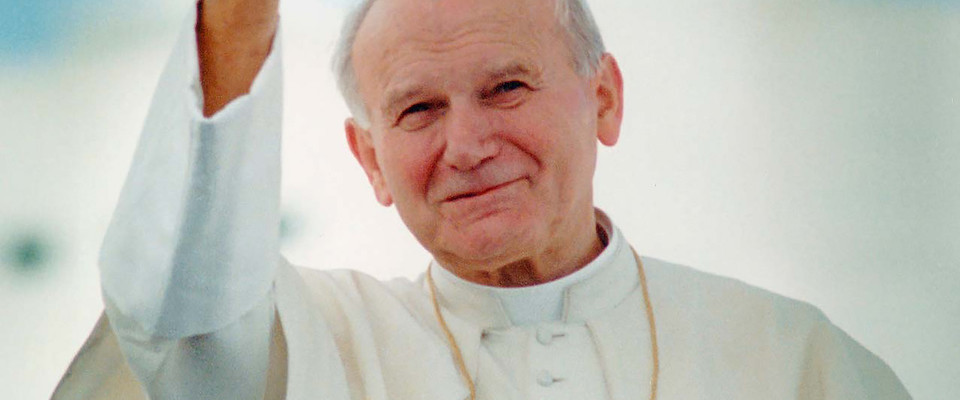
Published March 29, 2023
In the first chapter of Profiles in Courage, John F. Kennedy quoted an exasperated congressman, John Steven McGroarty, who wrote an irritating constituent in these neatly acerbic terms: “One of the countless drawbacks of being in Congress is that I am compelled to receive letters from an impertinent jackass like you in which you say that I promised to have the Sierra Madre mountains reforested and I have been in Congress two months and haven’t done it. Will you please take two running jumps and go to hell.”
As with members of Congress, so with columnists: The temptation to respond to attacks with force can be severe. Over four decades of columnizing in the Catholic press and elsewhere, I have generally resisted those temptations except under the gravest provocations, especially those involving my honor and others’. This is one of those occasions.
In his March 18 “Letter from Rome” in La Croix International, Robert Mickens not only disserves his readers by displaying a deep ignorance of what is afoot in Rome these days (or, perhaps worse, a refusal to write about it); he also denounces me as “the self-promoting ‘official biographer’ of John Paul II.” This is false; it slanders me, and, worse, it slanders John Paul II. Such slanders require a public response, which may also serve to clarify some things.
First, I have never, ever, on any occasion or in print, described myself as John Paul II’s “official biographer.” In fact, I have always tried to correct that misimpression when well-intentioned but ill-informed people use that phrase (or “authorized biographer”) in introducing me. An official or authorized biography is one that has been vetted, even edited, by the subject or his or her heirs, in return for access to the subject and his or her records. There was absolutely none of that in my relationship with John Paul II, as Mickens would have learned had he bothered to read page 101 of my memoir, Lessons in Hope: My Unexpected Life with St. John Paul II. There, I describe a dinner meeting with the pope on March 7, 1996, in which I explained to John Paul that he could not see a word of what I would write until I handed him the published book—to which he replied, “That’s obvious. Now let’s talk about something interesting.”
Second, to suggest that John Paul II wanted a vetted biography is to suggest that he wanted a dishonest, or at least less-than-fully-honest, account of his life and pontificate. No one who actually knew the man could ever imagine him wanting any such thing (although it’s entirely imaginable—because it’s true—that some curialists preferred something other than the complete liberty the pope gave me to write what I judged to be the truth).
Mickens, however, is not the only miscreant attacking John Paul II these days. Some of his fellow Poles are, on the basis of a recent “documentary” film, Franciszkańska 3, by Marcin Gutowski, and a new book, Maxima Culpa, by Ekke Overbeek. These new attacks use undigested and uncontextualized raw files from the communist-era Polish secret intelligence service to suggest that, as archbishop of Cracow, Karol Wojtyła covered up clerical sexual abuse.
Gutowski and Overbeek are agenda-driven, and they display their agenda without much subtlety: They seem less interested in the reform of the Church than in trying to demolish the reputation of Poland’s greatest son, who was also the country’s twentieth-century liberator. No social and cultural projects, no dismay at the too-close identification of the Polish episcopate with one political party, and no anger at clerical arrogance can justify the calumnies against John Paul II that these critics and others have committed—calumnies to which longtime friends of Karol Wojtyła have too often responded tepidly and, it seems, fearfully; calumnies that are now being exported to the world.
Wasn’t one assassination attempt against John Paul II enough?
Clerical sexual abuse is a grave sin and crime. Sexual abuse was and is facilitated by the kind of clericalism infecting priests and bishops who imagine themselves a superior caste rather than the servants of all. And clerical sexual abuse must be rooted out of the Church if Catholicism is to be salt and light to the world, as the Lord Jesus commanded and John Paul II urged in his summons to the New Evangelization. This cleansing will require a thorough examination of the Church’s past, conducted according to internationally recognized methods and standards of historical scholarship.
John Paul II, who called Catholicism to “cleanse its memory,” would want nothing less.
George Weigel’s column “The Catholic Difference” is syndicated by the Denver Catholic, the official publication of the Archdiocese of Denver.
George Weigel, Distinguished Senior Fellow of the Ethics and Public Policy Center, is a Catholic theologian and one of America’s leading public intellectuals. He holds EPPC’s William E. Simon Chair in Catholic Studies.











